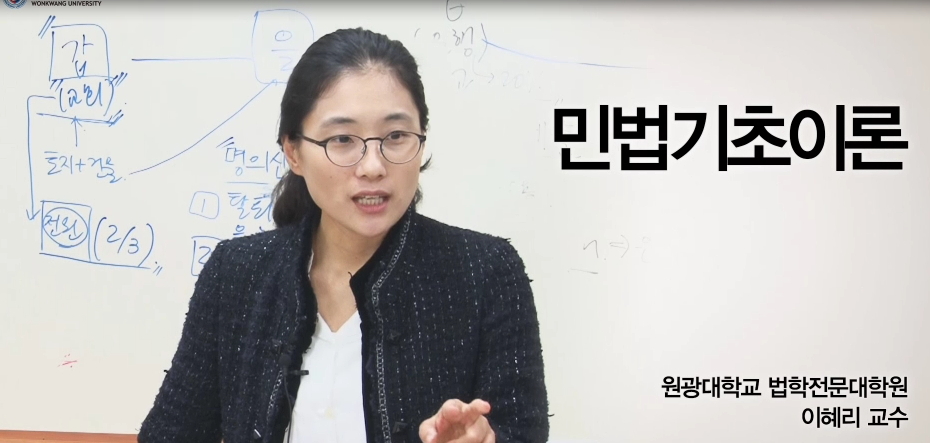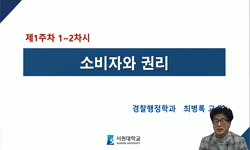중국의 법체계도 대륙법계 국가가 일반적인 체계와 같이 헌법, 법률, 행정법규, 지방성법규 등으로 법체계를 형성하고 있다. 그리고 입법권은 국민의 대표기관인 전인대가 행사한다. 중국...
http://chineseinput.net/에서 pinyin(병음)방식으로 중국어를 변환할 수 있습니다.
변환된 중국어를 복사하여 사용하시면 됩니다.
- 中文 을 입력하시려면 zhongwen을 입력하시고 space를누르시면됩니다.
- 北京 을 입력하시려면 beijing을 입력하시고 space를 누르시면 됩니다.
https://www.riss.kr/link?id=A107259091
- 저자
- 발행기관
- 학술지명
- 권호사항
-
발행연도
2020
-
작성언어
Korean
-
주제어
전인대 ; 전인대 상무위원회 ; 기본법률 ; 비기본법률 ; 개정권 ; NPC ; NPC Standing Committee ; Basic Law ; Non-Basic Law ; Right to Amend
-
등재정보
KCI우수등재
-
자료형태
학술저널
- 발행기관 URL
-
수록면
279-303(25쪽)
- DOI식별코드
- 제공처
- 소장기관
-
0
상세조회 -
0
다운로드
부가정보
국문 초록 (Abstract)
중국은 전인대제도의 특성으로 인해서 입법권을 전인대와 전인대 상무위원회가 공동으로 행사한다. 따라서 법률도 기본법률과 비기본법률로 구분하여 전인대는 기본법률을 제정하고, 전인대 상무원회는 비기본법률을 제정한다.
기본법률은 중국특유의 사회주의 법률체계이고 중국의 법률형식에 있어서 매우 중요한 지위를 가지고 있다. 현행헌법과 입법법은 기본법률이라는 전문적인 개념을 사용하고 있지만, 기본 법률에 대한 명확한 개념정의, 기본법률의 범위 및 효력 등에 대한 언급을 하지 않고 있다. 그 결과 전인대는 입법기관으로서의 주도적 지위를 상실하고, 전인대 상무위원회가 입법기관으로서의 주도적 지위를 실질적으로 행사하고 있다. 이는 법률의 민주적 정당성에 중대한 영향을 미친다. 따라서 헌법 및 입법법의 개정을 통해서 기본법률의 개념, 범위, 성격 등을 명확히 확정하는 작업이 필요하다.
또한 중국의 입법체계상 전인대 상무위원회가 기본법률에 대한 보충과 개정을 하는 것은 불가피한 현상이다. 하지만 전인대 상무위원회의 과도한 개정권 행사로 인해서 최고권력기관인 전인대의 입법권이 침해되는 경우가 빈번이 발생한다. 따라서 전인대의 전인대 상무위원회에 대한 형식적 감독권을 실질화 시켜 전인대 상무위원회의 기본법률에 대한 개정권을 통제할 필요가 있다.
중국의 법체계도 대륙법계 국가가 일반적인 체계와 같이 헌법, 법률, 행정법규, 지방성법규 등으로 법체계를 형성하고 있다. 그리고 입법권은 국민의 대표기관인 전인대가 행사한다.
중국은 전인대제도의 특성으로 인해서 입법권을 전인대와 전인대 상무위원회가 공동으로 행사한다. 따라서 법률도 기본법률과 비기본법률로 구분하여 전인대는 기본법률을 제정하고, 전인대 상무원회는 비기본법률을 제정한다.
기본법률은 중국특유의 사회주의 법률체계이고 중국의 법률형식에 있어서 매우 중요한 지위를 가지고 있다. 현행헌법과 입법법은 기본법률이라는 전문적인 개념을 사용하고 있지만, 기본 법률에 대한 명확한 개념정의, 기본법률의 범위 및 효력 등에 대한 언급을 하지 않고 있다. 그 결과 전인대는 입법기관으로서의 주도적 지위를 상실하고, 전인대 상무위원회가 입법기관으로서의 주도적 지위를 실질적으로 행사하고 있다. 이는 법률의 민주적 정당성에 중대한 영향을 미친다. 따라서 헌법 및 입법법의 개정을 통해서 기본법률의 개념, 범위, 성격 등을 명확히 확정하는 작업이 필요하다.
또한 중국의 입법체계상 전인대 상무위원회가 기본법률에 대한 보충과 개정을 하는 것은 불가피한 현상이다. 하지만 전인대 상무위원회의 과도한 개정권 행사로 인해서 최고권력기관인 전인대의 입법권이 침해되는 경우가 빈번이 발생한다. 따라서 전인대의 전인대 상무위원회에 대한 형식적 감독권을 실질화 시켜 전인대 상무위원회의 기본법률에 대한 개정권을 통제할 필요가 있다.
다국어 초록 (Multilingual Abstract)
In China, due to the nature of the NPC system, legislative power is jointly exercised by the NPC and the NPC Standing Committee. Therefore, the law is divided into basic law and non-basic law, and the NPC enacts basic laws, and the NPC Standing Committee enacts non-basic law.
The basic law is China’s unique socialist legal system and has a very important position in China’s legal form. The current constitution and legislative law use the professional concept of basic law, but they do not mention a clear definition of the concept of basic law and the scope and effect of basic law. As a result, the NPC has lost its leading position as a legislative body, and the NPC Standing Committee is actually exercising its leading position as a legislative body. This has a significant impact on the democratic legitimacy of the law. Therefore, it is necessary to clarify the concept, scope, and character of the basic law through amendment of the constitution and legislation.
In addition, it is an inevitable phenomenon for the NPC Standing Committee to supplement and amend basic laws under the legislative system of China. However, the legislative power of the NPC, the highest authority, is often violated due to excessive exercise of the right to amend by the NPC Standing Committee. Therefore, it is necessary to control the right to amend the NPC standing committee by converting the formal supervision to actual supervision of the NPC.
The legal system of China is the same as that of the continental legal system. The legal system is formed by the constitution, law, administrative regulations, and local law, etc. And the legislative power is exercised by the NPC, the representative b...
The legal system of China is the same as that of the continental legal system. The legal system is formed by the constitution, law, administrative regulations, and local law, etc. And the legislative power is exercised by the NPC, the representative body of the people.
In China, due to the nature of the NPC system, legislative power is jointly exercised by the NPC and the NPC Standing Committee. Therefore, the law is divided into basic law and non-basic law, and the NPC enacts basic laws, and the NPC Standing Committee enacts non-basic law.
The basic law is China’s unique socialist legal system and has a very important position in China’s legal form. The current constitution and legislative law use the professional concept of basic law, but they do not mention a clear definition of the concept of basic law and the scope and effect of basic law. As a result, the NPC has lost its leading position as a legislative body, and the NPC Standing Committee is actually exercising its leading position as a legislative body. This has a significant impact on the democratic legitimacy of the law. Therefore, it is necessary to clarify the concept, scope, and character of the basic law through amendment of the constitution and legislation.
In addition, it is an inevitable phenomenon for the NPC Standing Committee to supplement and amend basic laws under the legislative system of China. However, the legislative power of the NPC, the highest authority, is often violated due to excessive exercise of the right to amend by the NPC Standing Committee. Therefore, it is necessary to control the right to amend the NPC standing committee by converting the formal supervision to actual supervision of the NPC.
목차 (Table of Contents)
- 〈국문초록〉
- Ⅰ. 서론
- Ⅱ. 중국의 현행헌법상 기본법률과 비기본법률에 대한 구분 및 의도
- Ⅲ. 기본법률의 개념과 범위 및 효력
- Ⅳ. 기본법률 개정권
- 〈국문초록〉
- Ⅰ. 서론
- Ⅱ. 중국의 현행헌법상 기본법률과 비기본법률에 대한 구분 및 의도
- Ⅲ. 기본법률의 개념과 범위 및 효력
- Ⅳ. 기본법률 개정권
- Ⅴ. 결론
- 참고문헌
- 〈Abstract〉
동일학술지(권/호) 다른 논문
-
대의민주주의를 넘어, 하이브리드 민주주의는 가능한가? -새로운 민주적 거버넌스 모델을 위한 시론-
- 한국공법학회
- 윤성현(Yoon, SungHyun)
- 2020
- KCI우수등재
-
“대의민주주의를 넘어, 하이브리드 민주주의는 가능한가?”에 대한 토론문
- 한국공법학회
- 이계수(Yi, Kye Soo)
- 2020
- KCI우수등재
-
“대의민주주의를 넘어, 하이브리드 민주주의는 가능한가?”에 대한 토론문
- 한국공법학회
- 차진아(Cha, Jina)
- 2020
- KCI우수등재
-
行政立法에 대한 民主的 統制 - 특히 의회입법의 실패와 소위 “시행령 정치”의 문제를 중심으로 -
- 한국공법학회
- 정남철(Nam-Chul Chung)
- 2020
- KCI우수등재





 DBpia
DBpia







